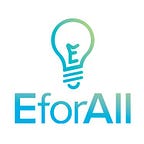What Assumptions Am I Making About my Business?
by Suchi Mumford of Marigold Bazaar, 2020 Summer Cohort
Hello Everyone!
Welcome to the EforAll 2020 Summer Accelerator program! This summer the program is being run a little differently. Due the the COVID-19 Pandemic, our group is not able to meet in person. All classes this summer will be held virtually. The staff at EforAll are doing a great job fostering a sense of community during these very strange times. We have a great group of entrepreneurs who are all using this time to shape and develop their businesses.
My name is Suchi Mumford and I am developing an online retail business called Marigold Bazaar. My business will feature Indian tunic style tops that are easy to wear, comfortable and in colors and fabric that can easily be worn in a professional environment. I hope to expand into traditional jewelry and home goods. My products will be sourced from artisans whose stories and techniques will be shared as part of the brand.
During our first week of class our guest speaker was the EforAll CEO, David Parker. David presented us with the Business Model Canvas (BMC), an alternative to the Business Plan. Each of us received a large print out of the BMC in the mail which we will use to brainstorm aspects of our business. We can laminate the print out and use a dry erase marker to write in notes or use post-its for our brainstorming. Either way, it’s a working tool used to help us think through our businesses. During week 1 we talked about that BMC and the first sections — Customer Segments and Value Proposition.
During our second week, for this which this blog is dedicated, we dove deeper into the two topics of Customer Segmentation and Value Proposition. Our guest speaker for both of these classes was Joe Radwich, co-founder of Isurus, a Marketing Research firm that helps companies understand the market and their buyers. Joe is a mentor for the EforAll program and has been in business for 20 years.
Customer Segmentation is understanding our customer. Rather than thinking about a whole demographic we were challenged with thinking about ‘1 ideal customer’. How do we reach that customer? Maximize our time and budget in the immediate term by focusing on that ideal person. This can yield a better return on investment. We were asked to identify ‘Pain Points’. What problem are we solving for this customer? Most businesses fill a need and we should ask ourselves what need are we filling. It may not be what we think.
Value Proposition was discussed further and we broke into small groups (via breakout rooms on Zoom) to ask these questions among ourselves for each business. We asked ‘What must be True about the customers’ needs and behaviors’, ‘what would keep the customer from buying’ and ‘what market metrics are important to understand?’ While we think we know who our customers are, we may not. We may believe we can sell 100 units per day but how do we know? What metrics have we studied? What evidence do we have to suggest our product is needed? What fear might be stopping people? What fear may be causing people to look for our product?
Value Proposition is an easy exercise when you are evaluating other people’s businesses but some students confessed that it more challenging to do this when looking at your own business.
Businesses exist to serve a customer and we must ask ourselves; What Assumptions am I making about my business?
